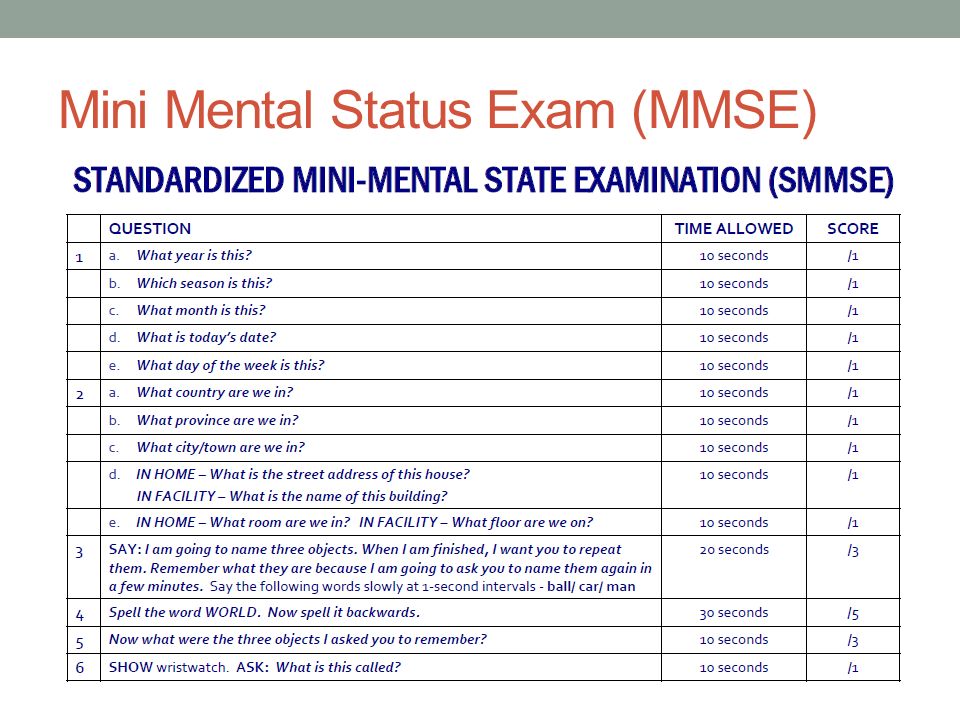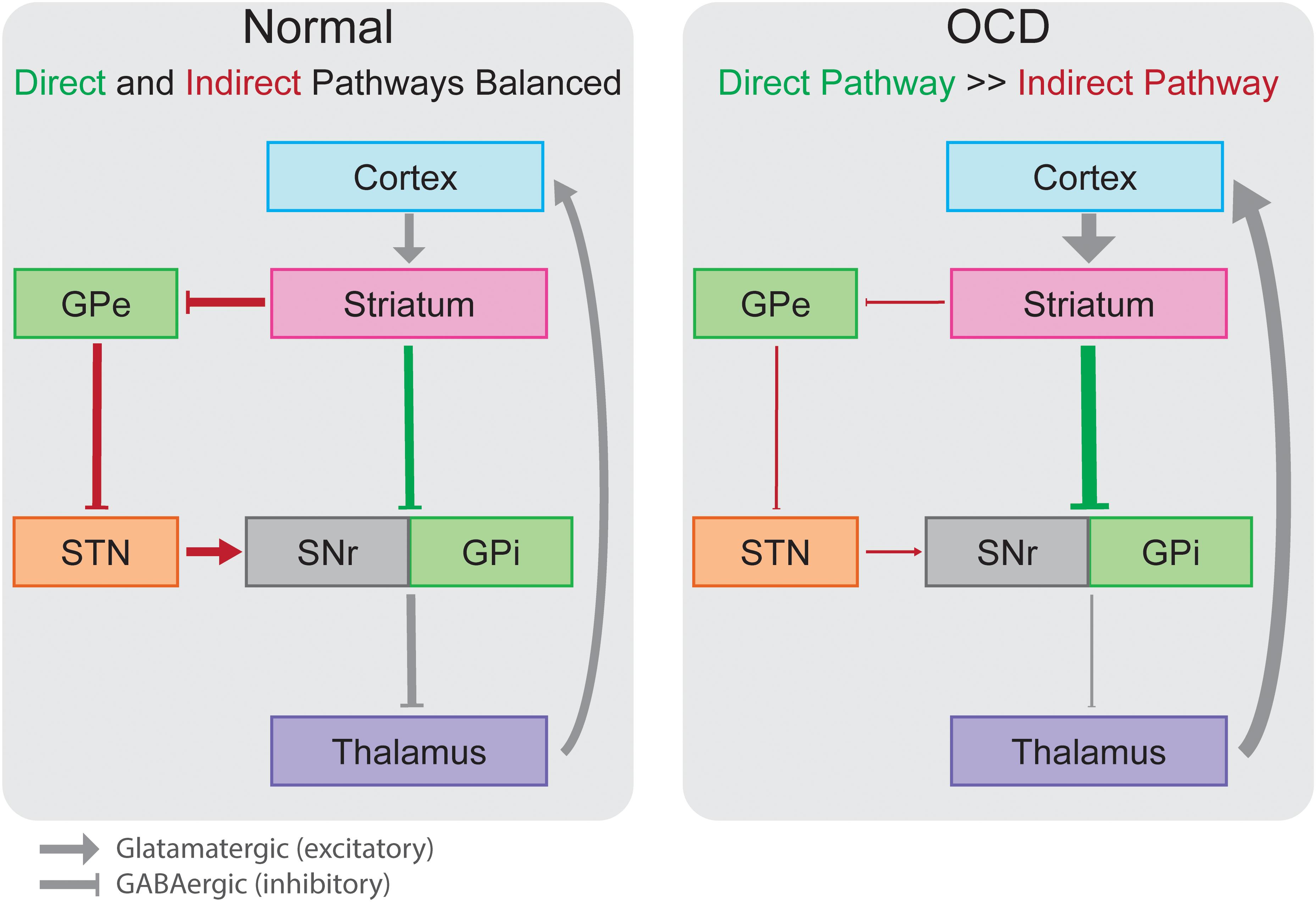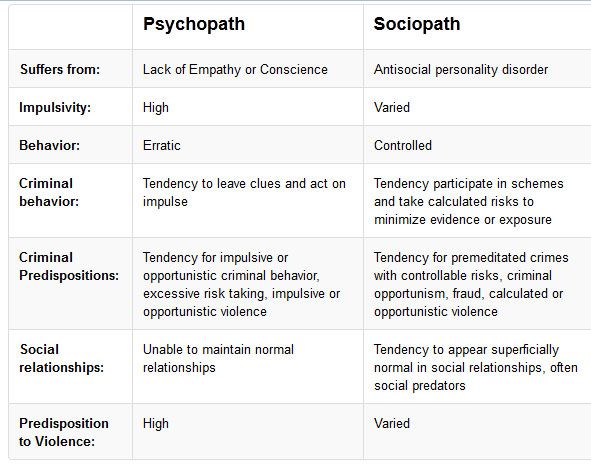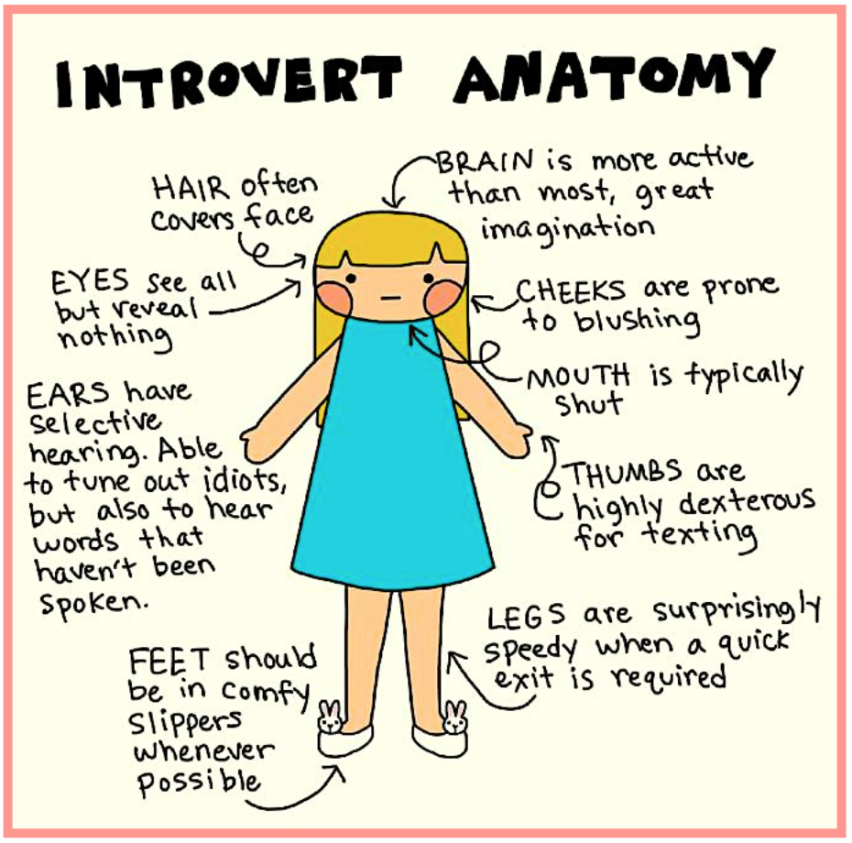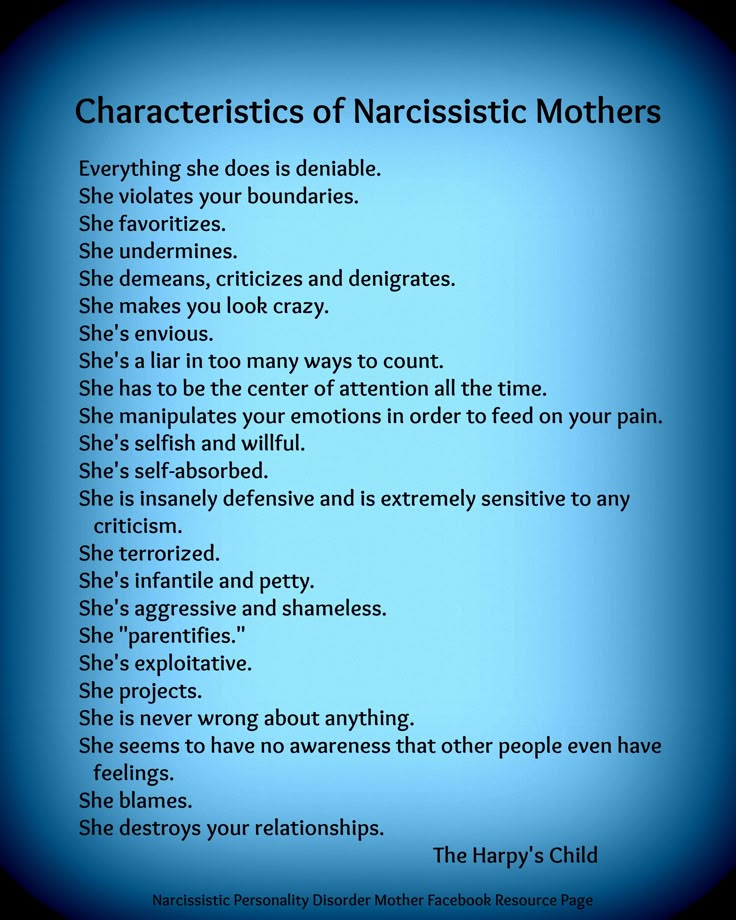How to deal with malicious mother syndrome
What is 'Malicious Parent Syndrome'?
Divorce and custody proceedings are often high-stress, contentious events that can cause extreme behavior on the part of those involved. Some cases have resulted in situations tied to what was often called "malicious mother syndrome" but is now referred to as "malicious parent syndrome." This syndrome was first theorized by the psychologist Ira Turkat to describe a pattern of abnormal behavior during divorce.
It's important to note that malicious parent or malicious mother syndrome is not currently recognized as a mental disorder by the medical profession. Rather, the syndrome describes a type of behavior at issue in some court cases and has lead proponents to call for further study and research.
When this syndrome occurs, a divorced or divorcing parent seeks to punish the other parent, sometimes going far enough as to harm or deprive their children in order to make the other parent look bad. Though most commonly called malicious mother syndrome, both mothers and fathers can be capable of such actions.
In his initial discussion of malicious mother syndrome, Dr. Turkat sought to identify and describe a condition where one parent acts purposefully and vengefully towards the other during or following divorce.
Malicious parent syndrome is characterized by four major criteria. Someone suffering from the syndrome:
- Attempts to punish the divorcing parent though alienating their children from the other parent and involving others or the courts in actions to separate parent and child;
- Seeks to deny children visitation and communication with the other parent and involvement in the child's school or extra-curricular activities;
- Lies to their children and others repeatedly and may engage in violations of law;
- Doesn't suffer any other mental disorder which would explain these actions.
The idea of identifying a syndrome or mental disorder to explain the actions of extreme malicious behavior by parents during divorce arose from examples of vindictive parents in clinical and legal cases. Some of these behaviors include burning down the house of an ex-spouse, falsely accusing the other parent of abuse, or purposely interfering with planned parenting time.
Some of these behaviors include burning down the house of an ex-spouse, falsely accusing the other parent of abuse, or purposely interfering with planned parenting time.
In one particular example that could be called an instance of malicious parent syndrome, a mother told her children they could not afford food because their father had wasted all their money. In another, a parent repeatedly misinformed the other parent about school activities, so that the parent could not participate in the child's school life. In all of these actions, the intent is to harm the other parent.
Psychological Consequences of Malicious ActsWhen one parent goes out of his or her way to hurt the other, great strain can be put on both the harmed parent and their relationship with the child. In some cases, a parent who is repeatedly subjected to malicious acts by their ex-spouse may withdraw from their child's life in order to avoid further conflict. A malicious parent may also successfully manipulate a child, resulting in them disliking and wanting to spend less time with the other parent.
Many of the behaviors associated with malicious parent syndrome can have legal consequences and may constitute civil and criminal law violations.
Some actions related to malicious parent syndrome can be easily understood as criminal acts, such as attacking the other parent or damaging their property. Depriving children of food or money, in order to make the other parent look bad, could constitute a form of child abuse, which can violate both family and criminal laws. Similarly, should a malicious parent lie under oath, he or she may be charged with the crime of perjury.
Other acts related to this pattern of behavior may be violations of civil law. For example, denying a parent their court-ordered visitation rights can constitute illegal parent time interference and can result in fines, court-ordered counseling, and adjustments to custody and visitation plans. Lying about the acts of the other parent in a way which harms his or her reputation and results in actual injury can constitute defamation.
Malicious behavior by a parent can also impact parenting plans and custody arrangements. If a parent has been involved in alienating, cruel or illegal behavior, this conduct can be considered a factor in any proceeding to gain or adjust custody.
If You've Been the Victim of a Malicious ParentIf you or your children have been the victim of an ex-spouse's vengeful behavior which may be a result of malicious mother/father/parent syndrome, you're not without recourse. You may be able to:
- Have custody and support agreements modified;
- Seek court-ordered counseling for the malicious parent; or
- Obtain supervised visitation.
Parents want nothing more than for their children to have the best possible start to their lives, so it can particularly upsetting when a malicious parent stands in the way. But there are legal processes in place to help resolve these issues, which are best navigated by an experienced family law attorney.
When Parents Go Too Far [2022]
Last Updated on September 12, 2022 by Turner Thornton
Divorce and child custody battles can bring out the worst in parents. When tensions run high, divorcing spouses sometimes engage in a type of destructive behavior called “Malicious Parent Syndrome.” In this article, we will answer common questions about Malicious Parent Syndrome and explain how it can cause irreparable damage to parent/child relationships and impact a family law case.
What is Malicious Parent Syndrome?Malicious Parent Syndrome (MPS) is a type of vengeful behavior exhibited by some divorcing or separated parents. It occurs when a parent deliberately tries to place the other bad parent in a bad light and harm their child’s relationship with them.
Malicious Parent Syndrome is not an actual mental disorder, but rather, a type of extreme, harmful behavior. It is also sometimes referred to as parental alienation, but they are not exactly the same. There are four criteria that must be met to qualify as Malicious Parent Syndrome.
There are four criteria that must be met to qualify as Malicious Parent Syndrome.
Malicious Parent Syndrome was originally described in 1995 by psychologist Ira Turkat, who originally referred to the behavior as “Malicious Mother Syndrome.” While Turkat originally described this behavior as exhibited by mothers, it is now widely recognized that fathers also engage in malicious parent syndrome. To qualify as malicious parent syndrome, four criteria must be met.
1. The parent attempts to punish his or her ex by:
* alienating their child from their other parent;
* involving others in malicious acts against the other parent; and
* engaging in excessive litigation.
2. The parent attempts to deny the other parent:
* regular visitation with the other parent;
* uninterrupted communication with the other parent; and
* participation in the child’s school life and other extra-curricular activities.
3. The pattern is pervasive and includes malicious acts including:
* repeatedly lying to their child about the other parent;
* lying to others about the other parent; and
* breaking the law.
4. The malicious parent doesn’t suffer from a mental disorder illness which would explain their actions.
What are some extreme examples of Malicious Parent Syndrome?As mentioned, malicious parent syndrome is an extreme type of behavior in which the a parent goes to great lengths to disrupt the life of their ex-spouse and create turmoil in the relationship with their children. Some examples of malicious parent syndrome include:
* A mother repeatedly telling her young children that their father is a child molester, even though there is no evidence to support this claim.
* A mother making her child sleep in a car or believe they are homeless to prove their father bankrupted them.
* A father who spreads viscous lies about his ex in an attempt to get her fired from her job.
These are just a few examples of the many ways in which a parent can engage in malicious parent syndrome. If you are the target of any of these types behaviors, it is important to seek help from a qualified family law attorney as soon as possible.
How does Malicious Parent Syndrome impact divorce or child custody cases?Malicious Parent Syndrome can have a serious impact on divorce and child custody cases. If one parent is engaging in MPS, the other parent may initially have a difficult time getting custody or visitation rights. It may delay or prolong the case while the court tries to sort out what is really happening.
In some instances, MPS can be criminal or can constitute a form of child abuse. If these incidences, the parent engaging in MPS is more likely to lose the court battle and will likely be ordered to pay child support and have limited or no visitation with their child. It is not uncommon for MPS to backfire on the influencing parent and cause more harm to them then their ex-spouse.
If you are involved in a divorce or child custody case, and you believe your spouse is engaging in MPS, it is important to seek legal assistance as soon as possible. An experienced family law attorney can help you navigate the family court process and protect your rights.
If you are involved in a divorce or child custody dispute in Fort Worth or the surrounding area and believe that your ex is engaging in Malicious Parent Syndrome, it is important to contact an experienced family law attorney. The attorneys at Varghese Summersett Family Law Group have experience handling cases involving MPS and can help you protect your rights and reputation.
It’s important to address this issue as soon as possible before it gets worse or causes irreparable harm to your relationship with your child. We’ll review your case and help you determine the best course of action moving forward. Let us help you protect what’s most important – your relationship with your kids. Schedule a consultation today by calling 817-900-3220.
Turner Thornton
Turner Thornton is a well-known family law attorney in Fort Worth who leads the Varghese Summersett Family Law Group. Turner has successfully guided hundreds of individuals and families through the most trying period of their lives as a skilled negotiator and savvy litigator. Turner Thornton concentrates his practice on family law, including divorce, child custody, contempt, and modification cases. He is experienced in handling estates with significant and unique assets that can be difficult to value. He finds amicable resolutions where possible to conserve his client's resources, but knows how to take the gloves off if the situation calls for it. He has had remarkable results in and outside of the courtroom based largely on his ability and desire to understand his clients' needs and guide them on the pathway to what success looks like for them.
Leave a Reply
Kate Daniel
October 20, 2022 No Comments
Paralegal Kate Daniel is a paralegal at Varghese Summersett Family Law Group, where she works alongside Senior Associate Attorney Stephanie Sabelhaus. Together, they provide comprehensive
Together, they provide comprehensive
Read More »
Child Support in Texas: What Happens When The Unexpected Happens?
October 14, 2022 No Comments
Last Updated on October 14, 2022 by Benson Varghese Child support in Texas can be confusing and controversial on a typical day – so what
Read More »
Table of Contents
Schedule a ConsultationSubscribe to our newsletter.
your email address
Where does the bad mom syndrome come from and how to get rid of it in a week - an article on TCHK
Tested on myself
Probably every mother has heard that she is raising a child incorrectly. TV, grandmothers, social networks, passers-by and even a husband - it seems that the whole world knows more about motherhood than the one who holds her baby in her arms. How can you not come to the idea that you are a “bad mom”? We talk about a useful technique that we tested on ourselves.
Why even the best mother has a feeling of guilt
There are two ways in which a feeling of guilt penetrates a mother's subconscious – external and internal. External is a discrepancy with the pictures that social networks, films, books, our relatives and friends paint for us. A young mother “shoulds” so many things: quickly get in shape, feed according to the rules, work or not work, sleep with the child or immediately move to a separate room, remain attractive to her husband, return to intimate relationships as soon as possible, not lose touch with friends and relatives, walk twice a day with the baby, engage in its development, do not miss visits to the pediatrician ... The list is endless. It seems that if something is missing from it, the reputation of the poor mother in the eyes of the public will be damaged.
But this is not so bad. Some mothers manage not to pay much attention to external factors. But what about the inner demons? How can a mother be considered a good mother whose child has a broken knee or is ill? And the one who wants to escape from her baby and husband to a desert island and finally sleep alone? Is it possible not to kiss your child every minute and not send hundreds of photos to grandmothers, but just calmly look at him or (horror!) work? Isn't this a defect? Internal doubts, fears, misunderstanding of their feelings come up against a hormonal storm, complemented by mood swings, tears and endless fatigue. It is not surprising that the conclusion suggests itself: “I am a bad mother, motherhood is not mine.” Impossible tasks grow one after another, the mood worsens, irritation appears on the child. And now a woman who used to successfully cope with all matters, feels worthless. Fortunately, it's not forever. And not true.
It is not surprising that the conclusion suggests itself: “I am a bad mother, motherhood is not mine.” Impossible tasks grow one after another, the mood worsens, irritation appears on the child. And now a woman who used to successfully cope with all matters, feels worthless. Fortunately, it's not forever. And not true.
Useful advice from psychologists
How to get rid of guilt? Books on the psychology of motherhood, webinars, lectures, courses and reminders for young mothers are similar in many ways. Their main principle is to discard other people's attitudes and opinions, take care of themselves more and concentrate on positive moments. Let us recall a few, in our opinion, the most sensible and useful tips, and then move on to the exercise.
1. Restore the resource. It is impossible to calmly endure children's crying, growing teeth, colic, sleepless nights and other difficulties of motherhood if your body is exhausted. Recognize that the birth of a child is not only a joy and a long-awaited event, but also a great stress.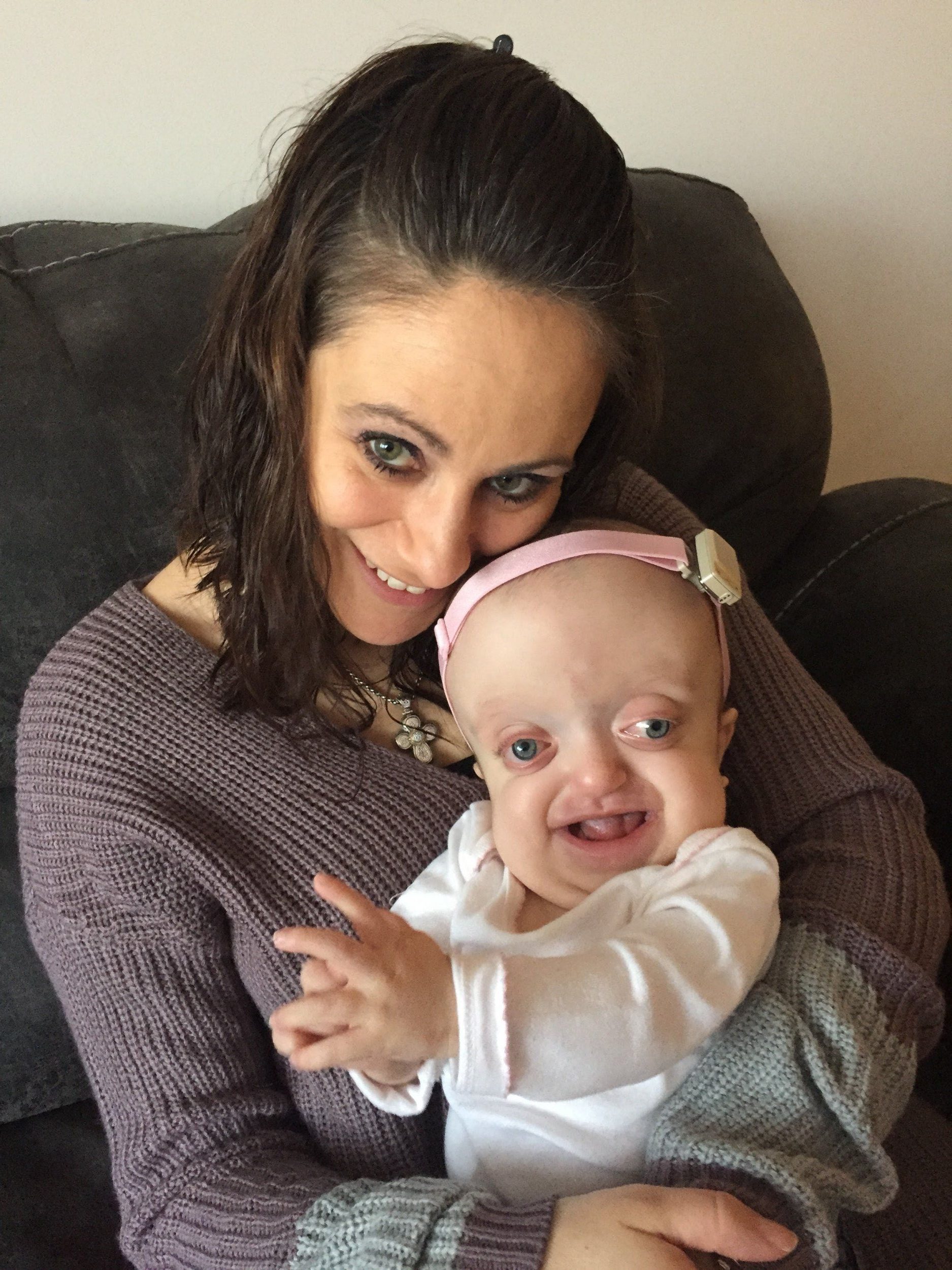 Mom gives the baby a huge supply of vitamins, minerals and nutrients, without which her body literally begins to fall apart: muscles hurt, joints weaken, blood composition is disturbed, the nervous system fails. If the car has no gas, it won't go anywhere. Women, after the birth of a child, continue to do their best to maintain the same speed of life - even "with a pusher", even in tow. By any means instead of stopping and filling up the tank.
Mom gives the baby a huge supply of vitamins, minerals and nutrients, without which her body literally begins to fall apart: muscles hurt, joints weaken, blood composition is disturbed, the nervous system fails. If the car has no gas, it won't go anywhere. Women, after the birth of a child, continue to do their best to maintain the same speed of life - even "with a pusher", even in tow. By any means instead of stopping and filling up the tank.
Don't do that! The first and most important rule is systematic self-care for at least a year. A healthy balanced diet, taking vitamins and minerals as prescribed by a doctor and, of course, regular sleep. Agree with your husband to get up to the child in turn, ask your relatives to take the baby for the weekend, give up all household chores and go to bed during the day - six months in an untidy apartment is not as scary as six months of lack of sleep. Trust a mom whose baby didn't sleep well until 2.5 years old.
2. Prioritize as you see fit.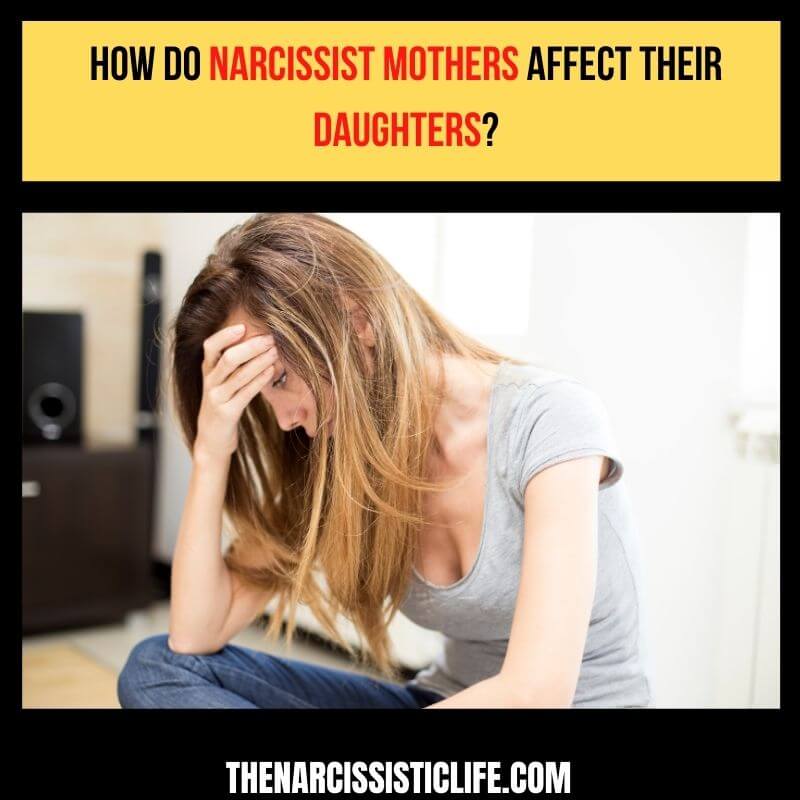 Accept the fact that you are not a robot and cannot do everything perfectly. Do only what is really important for you and your child first. Perhaps one day you will cancel your evening swim for an exciting movie. Or, instead of walking in the cold, set the stroller on the balcony, and drink tea yourself in silence. Do not seek to entertain a child 24/7 if he does not require attention. Prepare simple dishes or order ready-made ones, ask relatives to bring homemade cutlets or cook chicken broth. Yes, you've dealt with these little things easily before. But now it makes sense to save energy, so do not hesitate to ask for help. This will not detract from your merits in the field of motherhood.
Accept the fact that you are not a robot and cannot do everything perfectly. Do only what is really important for you and your child first. Perhaps one day you will cancel your evening swim for an exciting movie. Or, instead of walking in the cold, set the stroller on the balcony, and drink tea yourself in silence. Do not seek to entertain a child 24/7 if he does not require attention. Prepare simple dishes or order ready-made ones, ask relatives to bring homemade cutlets or cook chicken broth. Yes, you've dealt with these little things easily before. But now it makes sense to save energy, so do not hesitate to ask for help. This will not detract from your merits in the field of motherhood.
3. Don't chase the ideal - it doesn't exist. Ideal mothers are only in commercials, social networks and in the stories of imperfect mothers just like you. Someone has time to do their hair and makeup, someone prefers to walk in a T-shirt and with a bun on their head, some do fitness from the first days after giving birth, others eat stress with buns with appetite. In psychology, there is a phrase: "I'm OK, you're OK." A book with this title was written by psychiatrist Thomas E. Harris at 1967 year. The bottom line is that we are all normal. Those to whom motherhood brings happiness from the first minute, and those who fall into depression. Those who cook three meals for lunch and those who eat prepared meals. Every mom goes her own way. There are easy days, there are unbearably difficult days - both are normal for motherhood. You are a normal mom! And other moms are fine too. And ideal mothers are invented by marketers so that advertising for children's products works better.
In psychology, there is a phrase: "I'm OK, you're OK." A book with this title was written by psychiatrist Thomas E. Harris at 1967 year. The bottom line is that we are all normal. Those to whom motherhood brings happiness from the first minute, and those who fall into depression. Those who cook three meals for lunch and those who eat prepared meals. Every mom goes her own way. There are easy days, there are unbearably difficult days - both are normal for motherhood. You are a normal mom! And other moms are fine too. And ideal mothers are invented by marketers so that advertising for children's products works better.
4. Down with the voices in your head! Don't take to heart (or rather don't listen at all) someone else's opinion about your motherhood. How you should put your baby to bed, how to feed, give or not give a pacifier, hold or not hold in your arms - all this concerns only you and your child. Giving advice, especially unsolicited advice, is as stupid and pointless as telling a passerby on the street how to brush his teeth, what size shoes to buy, and what shampoo to wash his hair with. So take all the "well-wishers" for radio interference and turn off this wave. Send all the voices from the past there, which will tell how our grandmothers gave birth in the field, mothers went to the factory in three shifts with a baby in their arms, and neighbors bathed their children in a trough and did without diapers. They are great. And well done for not doing what they do.
So take all the "well-wishers" for radio interference and turn off this wave. Send all the voices from the past there, which will tell how our grandmothers gave birth in the field, mothers went to the factory in three shifts with a baby in their arms, and neighbors bathed their children in a trough and did without diapers. They are great. And well done for not doing what they do.
The Good Mom Checklist: A Technique That Works
A simple and useful technique that can help boost your self-esteem is to create a good mom checklist. To begin with, identify the three most important points that are currently relevant for the child. What causes you the most anxiety is the priority.
For example, you think it's time to introduce complementary foods and switch to regular adult food. In addition, it would be nice to engage in the development of the child, and even more so - to walk at least once a day. If you think that this is the most important thing for a "good mom" at this stage, write it down in a table.
Formulate the points so that they sound from the child's point of view. For example, not “I walked with the child”, but “The child walked”. Thus, the walk will be counted, even if there was a dad or grandmother with the baby on the street. Or maybe the stroller was standing on the balcony at all, while the baby was sleeping peacefully in it. Is there any merit in this? Of course! This is your child, and you organized a walk for him.
Determine what will count for the game. Set a timer for 15 minutes, put your phone away, and fully concentrate on your baby. It can be a light massage, picking up a pyramid or a designer, folding small items into a bottle with a narrow neck, that is, anything. The main thing is to be there, comment on the actions, prompt, praise and encourage the child. And in just 15 minutes, another check mark will appear on your list.
The same goes for food. Don't try to be perfect all at once. For some, half an apple eaten on their own is already a huge victory, while others are ready to try cutlets with potatoes. What matters is not how much is eaten, but the process itself. After all, the child studied, tried, which means that one more point is closed.
Hang the chart on your refrigerator and remember to complete it every day. Within a week, you will see that you are doing a great job with the role of a good mother. And even if some cells turn out to be empty in a month, it will not look terrible, because there are a lot of days when you have achieved success. Being a good mom doesn't mean sacrificing health, sleep, personal time, or work. The secret is that for a child from the moment of birth, the mother is the most important, best and beloved person. No matter what toys she buys for him, how often she feeds him candy or takes him to the “educators”.
Instead of worrying about your imperfection, smile more often at your baby, hug him and try to find pleasure and pleasant moments in every day together.
I can't communicate with my mother and I hate myself for it. How do people with a guilt complex live? But how to live when it becomes destructive and acquires pathological forms? People with guilt syndrome told "Snob" who in childhood imposed this feeling on them and how it complicated their adult life.
Alexandra's story
I am five years old, my sister is about three. We are having fun. Mom can’t calm us down, so she lies down on the sofa, rolls her eyes and asks to call a neighbor: “I’m dying!” We believe her (my mother was very ill, suffered from asthmatic attacks of suffocation, and all my early childhood was in hospitals), crying, we promise to obey, and we ask: “Only, please, mommy, don’t die!” Since then, I have been very afraid of death and often think about it.
I am a late child. My mother grew up in a conservative family. From childhood, she inspired my sister and me that premarital sex is bad, girls who lost their innocence before marriage are prostitutes, and sex itself is filth and abomination and is needed only for the birth of children. I think these views are also explained by the fact that she married an unloved man who was much older than her. It was a kind of marriage of convenience: the mother needed to catch on in the big city, and the father, for whom this was the second marriage, needed a free housekeeper. When, as a teenager, I shared my love experiences and failures with my mother, she could call me an idiot and say that it was my own fault, because decent girls do not run after boys. Instead of support and words of consolation, I heard only accusations and reproaches. That being said, I can't say I felt unloved or underappreciated in everything else.
When, as a teenager, I shared my love experiences and failures with my mother, she could call me an idiot and say that it was my own fault, because decent girls do not run after boys. Instead of support and words of consolation, I heard only accusations and reproaches. That being said, I can't say I felt unloved or underappreciated in everything else.
Until the age of 18, my mother managed to keep me in a tight rein. Then I started to "rebel": I dyed my hair black and got pierced. I still didn't have a relationship. Mom constantly controlled where I was and with whom. I lost my virginity two months before my 20th birthday. Mom went to rest with her sister, and I could walk late into the night with whomever I wanted. My father took it easy. It was sex for the sake of sex. Nature began to take its toll at the age of 16, but somehow it was not possible. And then I just slept with a guy I knew for a couple of weeks. I remember my first thought was: "Now no one will marry me."
Since then, every time I get into a relationship or have sex with a new partner, I feel guilty. I'm worried that they'll think badly of me, even though they don't. I don't want them to think I'm a whore. This mindset, hammered into my head as a child, does not allow me to live in peace, although with my brain I understand that all this is nonsense.
I'm worried that they'll think badly of me, even though they don't. I don't want them to think I'm a whore. This mindset, hammered into my head as a child, does not allow me to live in peace, although with my brain I understand that all this is nonsense.
When my mother found out that I was not a “girl”, she said that she was disappointed that I had embarrassed her: “You made a “mistake”, I hope to “make a mistake” (read: have sex with someone before marriage) again you will." Until now, when we quarrel, she sometimes can call me a prostitute just because I had more than one partner, and even before marriage. At the same time, sex in my life happened infrequently, and I never cheated on a permanent partner, even if I slept with him a couple of times a year, until the relationship was completely broken. Well, I'm starting to make excuses again...
A strong sense of guilt affected more than just my sex life. Mom, who was used to living our life with her sister, never reconciled herself to the fact that we grew up. When, at the age of 25, my sister decided to live separately and moved out, her mother, with tears in her eyes, accused her of ingratitude, that she “left her elderly parents to the mercy of fate,” etc. The father, it must be said, took his daughter’s move as a matter of course. taken for granted and did not make a tragedy out of it. I couldn't move out. Guilt, love for my parents and the feeling that the family is the most important thing got the best of me, although I understand that moving out does not mean quitting. Well, my parents are really elderly, I help them a little financially (which also prevents me from renting a house) and do various small jobs around the house: from going to the grocery store and making an appointment at the clinic to nailing shelves and fixing a laptop.
When, at the age of 25, my sister decided to live separately and moved out, her mother, with tears in her eyes, accused her of ingratitude, that she “left her elderly parents to the mercy of fate,” etc. The father, it must be said, took his daughter’s move as a matter of course. taken for granted and did not make a tragedy out of it. I couldn't move out. Guilt, love for my parents and the feeling that the family is the most important thing got the best of me, although I understand that moving out does not mean quitting. Well, my parents are really elderly, I help them a little financially (which also prevents me from renting a house) and do various small jobs around the house: from going to the grocery store and making an appointment at the clinic to nailing shelves and fixing a laptop.
Everything would be fine, but my mother is still trying to control me and get into my personal life ("Good girls don't behave like that!" - "Mom, I'm a grown woman! Stop talking to me like I'm a little girl!"). I try to assert my boundaries and learn to say no. Often this ends in a fight. I break down and yell obscenities that everything *** [got me], that I can’t do this anymore. If my mother drives over a sick person, I can send her. Previously, I was always silent, endured her insults, but then I got tired of it. In response, I hear that I have no right to insult her, but she can do it, because she gave birth to me, and not vice versa. I blame myself for these failures. And mother begins to tell her friends that children are ungrateful and do not need to devote their lives to them.
I try to assert my boundaries and learn to say no. Often this ends in a fight. I break down and yell obscenities that everything *** [got me], that I can’t do this anymore. If my mother drives over a sick person, I can send her. Previously, I was always silent, endured her insults, but then I got tired of it. In response, I hear that I have no right to insult her, but she can do it, because she gave birth to me, and not vice versa. I blame myself for these failures. And mother begins to tell her friends that children are ungrateful and do not need to devote their lives to them.
Lately I have been crying a lot and I think it would be better if I moved. “Well, go! - she says, and then almost immediately: - And you there too! Yes, I put my whole life on you, I didn’t sleep at night! By the way, my mother is still unsuccessfully trying to return my sister to her father's house, trying to influence her through the parents of a friend with whom my sister rents an apartment. My conversations on the topic that my sister has long been an adult, independent, independent and there is no need to interfere in her life, lead to only one reaction: “I don’t interfere! And in general, I'm a mother, I know what's best.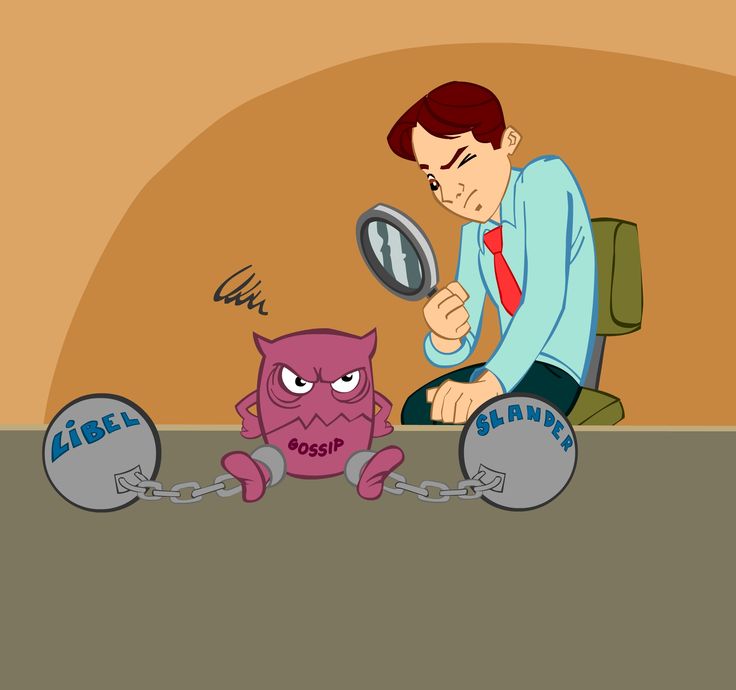 She must live at home. When she gets married, let her do what she wants.
She must live at home. When she gets married, let her do what she wants.
Mom, due to circumstances, never gave her mother a “glass of water”. My aunt took care of my bedridden grandmother, who lived in another country, for many years. She didn't get on with her life. Sometimes it seems to me that it will be the same with me and that I will be free only when my mother is gone. I hate myself for this thought. And I am very afraid of this moment: I love my parents and do not want to lose them.
All these showdowns and gnawing guilt take a lot of energy, so I try not to leave the room and keep communication with my mother to a minimum, and this is difficult - we live in the same house. And, of course, then the mother begins to be offended that I have little contact with her, and again I begin to be tormented by guilt. And so in a circle.
Veronika Timoshenko, psychologist at the Otradnoye Family Center:
Many psychologists believe that the cause of guilt in adults is a strict or even harsh upbringing that does not take into account the needs of the child. Alexandra's mother used manipulative techniques, inspired the girl that she was obliged to justify her expectations, often idealistic. The feeling of guilt imposed on the girl was used as a lever of influence on the child.
Alexandra's mother used manipulative techniques, inspired the girl that she was obliged to justify her expectations, often idealistic. The feeling of guilt imposed on the girl was used as a lever of influence on the child.
A person who grew up in such a family does not seem to be living his own life. The guilt complex makes him constantly please the parental will. He is afraid of a choice: he chooses who to be, with whom to live, how to behave, not on his own, but with an eye on his parents. At the same time, it seems to him that he is not good enough in his work, in his relations with a partner, children, friends. Guilt is excruciating and brings great discomfort, which does not make you feel happy.
Maryana's story
My mother told me all my life that I was somehow wrong, that I could not cope with anything and was not capable of anything. I believed her and from childhood I lived with a feeling of anxiety, thinking that everyone lives like that. Only last year, when I went to a psychotherapist for help with panic attacks, my eyes began to open.
Only last year, when I went to a psychotherapist for help with panic attacks, my eyes began to open.
My mother shamed me from childhood and blamed me for everything. I remember one late evening, when I was little, I woke up and did not find my mother nearby. I was very frightened and, loudly sobbing, “Mom! Mom!” ran out onto the porch. Then she appeared and, instead of reassuring me, she began to yell that I should be ashamed that I would disgrace her in front of the neighbors, so big - I'm scared! Another case. Mom and I came home late. It was far to go, and some soldiers undertook to give us a ride. There were three of them. Mom, an anxious person, came up with something for herself and began to cry. Maybe she was afraid to go alone with three men. (Later she told a friend that she didn’t know what had come over her then.) I was frightened and, not understanding why my mother was crying, I also began to cry. In the end, we were dropped off at the side of the road. Mom started screaming that they did it because of me and I shouldn't have cried. And there were many such situations when they made me guilty.
And there were many such situations when they made me guilty.
In general, it seems to me that my younger brother and I were something like cats for my mother: if my mother was in a good mood, she could stroke her head, if she was in a bad mood, we should not get under her feet. Mom had a saying that she used to scare my brother and me if we didn’t obey: “You will jump up to me again.” Hearing this, we rushed to do everything. True, she did not beat us. Our alcoholic father beat me - I was scared to death of him. Mom knew this, but didn’t do anything - she doesn’t get love and support well. Therefore, since childhood, I tried to be as convenient as possible for my parents: to sit quietly, talk little, once again not ask for anything, so long as they do not get angry. I thought that this way they would love me more and scold me less.
A few years later, my mother divorced my father and often told my brother and me: “If you don't like something, live with him.” I had the feeling that my mother didn't care if we were there or not. After the divorce, I missed her terribly: she worked hard and spent almost all her free time with her friends. Against the background of the stress experienced, at the age of 16 I developed social phobia and obsessive-compulsive disorder, later - generalized anxiety disorder. My therapist and I are still working on this.
After the divorce, I missed her terribly: she worked hard and spent almost all her free time with her friends. Against the background of the stress experienced, at the age of 16 I developed social phobia and obsessive-compulsive disorder, later - generalized anxiety disorder. My therapist and I are still working on this.
I went to university, but later dropped out due to depression during the third session. Mom then just began to hint that she did not know how to pay further for education. And I was already so exhausted that in a sense I decided to do her a “favor” by leaving everything. I thought I wasn't smart enough to go to university and I needed to go work as a salesperson like my mom. Although I passed all previous sessions successfully. After that, my mother constantly told me that I was a loser, that now my only way out was to find a rich husband and live at his expense, because there was still no sense from me. The manipulation, the lies, the sarcasm, the devaluation, the criticism, and the constant belief that I was helpless was presented as taking care of me. Therefore, I idealized my mother for a long time and believed that the problem was exclusively in me, that I was to blame for everything. It even came to thoughts of suicide - I felt myself such a nasty and worthless person.
Therefore, I idealized my mother for a long time and believed that the problem was exclusively in me, that I was to blame for everything. It even came to thoughts of suicide - I felt myself such a nasty and worthless person.
I lived with my mother for another ten years - there was no financial opportunity to move out. Constant screams, scandals, "you live in my house, so do as I tell you." It is very difficult to live with a person who is always dissatisfied with everything and criticizes everyone. At 28, I moved out and was finally able to exhale. My brother, who is two years younger than me, still lives with his mother and is not going to move out. He considers her a savior who took us away from an aggressive alcoholic father. I think the brother subconsciously believes that as long as he lives with his mother, everything will be fine with him.
With the move, anxiety and depression did not go away. Every time we met with my mother, the mood deteriorated: it was as if I was thrown back into the past, where they did not put me in anything and constantly reproached me. When I said how great it would be to go to live in another city or country, she told me that I could not cope and would disappear, and indeed, how could I leave my mother. If I didn’t want to do something for her, she said: “Well, how is it that you refuse your own mother?” And I felt guilty again.
When I said how great it would be to go to live in another city or country, she told me that I could not cope and would disappear, and indeed, how could I leave my mother. If I didn’t want to do something for her, she said: “Well, how is it that you refuse your own mother?” And I felt guilty again.
A couple of years ago, panic attacks added to my anxiety and depression. I remember one of the nights when I was covered, I called my mother and asked to talk to me, because I was very scared and it seemed that I was dying. Mom only said irritably that I had not chosen the best time to call, because she had to get up early for work tomorrow, and I had to deal with my problems myself. I did not turn to her for help anymore and finally turned to a psychotherapist. He helped me get rid of panic attacks and understand that I am not obliged to maintain relationships with people from communication with whom I feel bad, even if they are my relatives. I realized that all this time I did not break the connection with my mother only out of a sense of duty, and eventually stopped communication. But sometimes I think that I was mistaken, that all this seemed to me, that suddenly the therapist and I are wrong and with my decision I violate the age-old social foundations. My inner child is still afraid of the mother she depended on as a child.
But sometimes I think that I was mistaken, that all this seemed to me, that suddenly the therapist and I are wrong and with my decision I violate the age-old social foundations. My inner child is still afraid of the mother she depended on as a child.
Veronika Timoshenko, psychologist at the Otradnoye Family Center:
Maryana grew up in a dysfunctional family with dependent and co-dependent relatives, and her mother was emotionally unstable. In such families, personal boundaries are not respected, there is no respect for each other and for children, and children do not have a sense of security. A child, in order to survive, has to adapt to an adult, fulfilling his emotional requests. Subsequently, this strategy does not allow the personality to express itself and live a full life and can cause various disorders.
Sergey's story
My dad grew up without a father. His mother worked as a conductor. There was barely enough money to raise two children to their feet.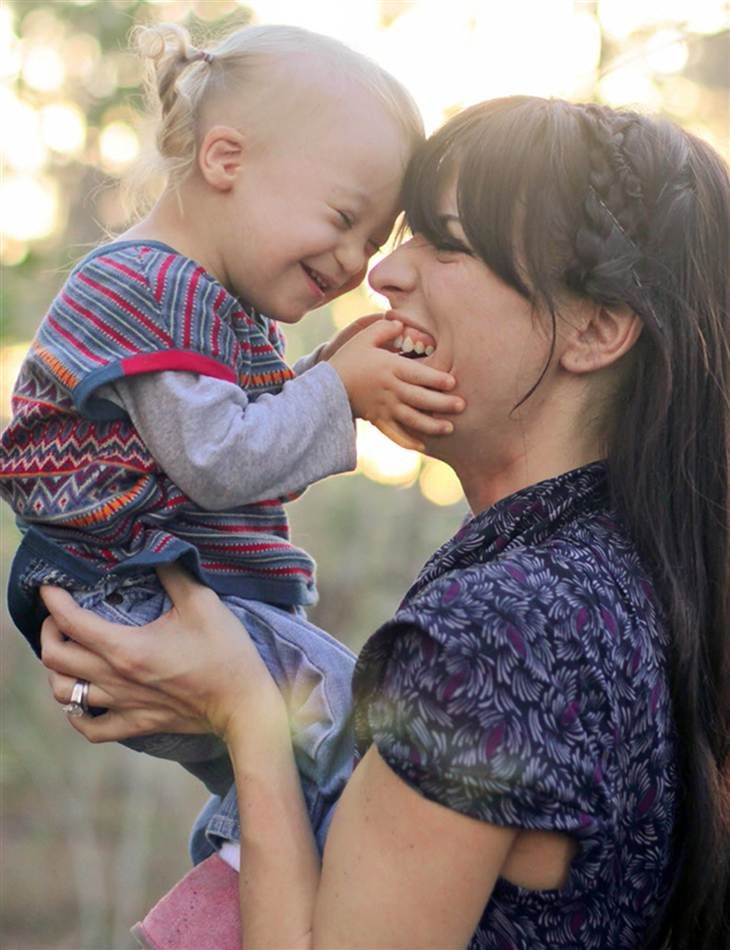 Father early learned what responsibility and independence are. Although we played football with him, went fishing, he did not participate in my direct upbringing and never gave advice that a boy needs so much - for example, what to do if a fight starts.
Father early learned what responsibility and independence are. Although we played football with him, went fishing, he did not participate in my direct upbringing and never gave advice that a boy needs so much - for example, what to do if a fight starts.
My mother is the youngest child in a large rural family. Her childhood cannot be called happy either: she had to do a lot of household chores, and my grandfather, after drinking, sometimes ran after her with an ax for fun. After school, the mother moved to the city and studied to be a teacher. She treated me not as a son, but as a student, plus she took care of me very much. My mother constantly scolded me for grades below five, even if it was a five with a minus, compared me with other children and with herself: “I studied for fives, you should also study like that!” At the same time, I was not praised for excellent grades, because getting five is “normal”, “as it should be”. Or here's another good example of her attitude towards me. When I was 5-6 years old, I played in the yard with the boys: they threw me into a snowdrift and piled on top, and I almost suffocated, because I was the smallest. Frightened and crying, I returned home and cursed at the boys from the threshold. For this I immediately got a hand on my lips from my mother, because I shouldn't swear. Why am I crying, my mother was absolutely not interested.
When I was 5-6 years old, I played in the yard with the boys: they threw me into a snowdrift and piled on top, and I almost suffocated, because I was the smallest. Frightened and crying, I returned home and cursed at the boys from the threshold. For this I immediately got a hand on my lips from my mother, because I shouldn't swear. Why am I crying, my mother was absolutely not interested.
When I was 12, my parents took out a mortgage - to pay it off, my father worked until late at night. Around the same period, we took in a paralyzed grandmother, who began to suffer from insanity. All this had a negative impact on the family psycho-emotional background. After school, I had to stay at home and take care of my grandmother. I began to study worse. My attempts to justify myself to my mother did not lead to anything good: in response to my arguments like “there are children who study worse,” she hypocritically retorted “they don’t bother me,” although my mother often compared me with those who study better. During these quarrels, I sometimes heard from my mother, “Some people in the orphanage live without parents at all, so you should be happy!” I didn’t understand why she behaved this way with me, and at some point I began to feel like an unwanted child (later I made claims to my parents for this, trying to make them feel guilty - I used their own methods against them). In addition, my father sometimes, without evil or intention to hurt me, told me that even before his marriage, in another city, he had a good job as a scientist and he regrets that, due to family circumstances, he had to give up everything and return home. My consciousness distorted this story to the point: “Since he regrets that he returned, it means that he regrets that he started a family, that I was born.”
During these quarrels, I sometimes heard from my mother, “Some people in the orphanage live without parents at all, so you should be happy!” I didn’t understand why she behaved this way with me, and at some point I began to feel like an unwanted child (later I made claims to my parents for this, trying to make them feel guilty - I used their own methods against them). In addition, my father sometimes, without evil or intention to hurt me, told me that even before his marriage, in another city, he had a good job as a scientist and he regrets that, due to family circumstances, he had to give up everything and return home. My consciousness distorted this story to the point: “Since he regrets that he returned, it means that he regrets that he started a family, that I was born.”
By the age of 16 I had developed a depressive disorder. Attempts to justify myself verbally, to get rid of guilt, to prove that I am normal, did not lead to anything, but only aggravated the situation, and I began to cripple myself. Physical pain distracted from mental and allowed emotions to be released. In a fit of anger, despair, hysteria, I could stuff a hematoma on my forehead with a pen and stab my hand with a knife. The mother immediately turned on the "maternal instinct", and she left her attacks. It turns out that I became the one who manipulates and causes feelings of guilt. We switched roles.
Physical pain distracted from mental and allowed emotions to be released. In a fit of anger, despair, hysteria, I could stuff a hematoma on my forehead with a pen and stab my hand with a knife. The mother immediately turned on the "maternal instinct", and she left her attacks. It turns out that I became the one who manipulates and causes feelings of guilt. We switched roles.
At the age of 23, depression reached its peak: I lost sleep, did not taste food, got up with the feeling that a brick had been put on my head, and thought about suicide (“No person, no problem”). Good friends sent me to a psychiatrist. Psychotherapy sessions helped me to return to a relative norm, recover physically and change my attitude to the situation. However, I cannot say that I have solved all my problems.
My critical condition affected my relationship with my parents. I communicate normally with my father, because I have fewer complaints about him. With mother - when. Although we had long conversations about forgiving each other, her habit of recalling the events of 10-15 years ago in any quarrel causes me a sharp response. We still periodically throw bile at each other, it’s just that now I dominate the conflict (and I don’t wish harm to my parents). This is absolutely no good for anyone, so I decided to step back and keep contact to a minimum. When I moved away from my parents, life became much easier for me.
We still periodically throw bile at each other, it’s just that now I dominate the conflict (and I don’t wish harm to my parents). This is absolutely no good for anyone, so I decided to step back and keep contact to a minimum. When I moved away from my parents, life became much easier for me.
Veronika Timoshenko, psychologist at the Otradnoye Family Center:
Sergey's mother was emotionally cold and distanced herself from the child. In addition to feelings of guilt, she imposed on him an excellent student complex.
Feelings of guilt begin to assume pathological dimensions and forms when a person engages in constant self-flagellation, does not believe in his own strength, becomes touchy, refuses to think and dream about the future. To get rid of this destructive feeling, a person needs to admit that it has acquired a pathological form in him, and go to an appointment with a specialist. Because, as a rule, to independently accept the postulates that no one is obliged to meet the expectations of others, that each personality has its own boundaries, that each personality is whole and valuable in itself, to look at the situation from different angles, a person with a guilt complex cannot.
The guilt complex goes hand in hand with the concept of obligation. There is a popular notion “no one owes anything to anyone”. It may sound controversial. But try replacing the word “must” with the word “I want”, and then your actions and your life will take on a completely different meaning: I help my loved ones not because I have to, but because I love them and want to help. Feel the difference?
Do not blame your parents and your difficult childhood for your own already adult problems and failures. Try to be a better parent to your inner child. Your life is in your hands.
What is a guilt complex and how to get rid of it? An irrational sense of guilt arises when a child is given a responsibility disproportionate to his age (as in the third story), when too much is demanded and expected from him. The child does not cope and feels guilty.
In all stories, children were unwanted or not born in love - and this is the root of the problem from the very beginning. That is, the formation of a guilt complex began even before the birth of these children. Such children try in every possible way to earn the love of their parents, but at the same time they believe that they are unworthy of being happy. They try to be comfortable, first for their parents, and later for those around them.
That is, the formation of a guilt complex began even before the birth of these children. Such children try in every possible way to earn the love of their parents, but at the same time they believe that they are unworthy of being happy. They try to be comfortable, first for their parents, and later for those around them.
Parents unconsciously transmit negative attitudes towards life to unwanted or unloved children: don't love, don't live, don't be happy. For example, in the first story, the mother, on a subconscious level, believed that she had gone to an unhappy marriage, therefore the daughter has no right to be happy and must follow her path, and her own desires are bad and sinful. In such families, there is a problem of emotional fusion, lack of boundaries, the child is perceived not as a separate person, but as the property of the parents.
Therefore, in order to overcome the guilt complex, a person needs to work with building personal boundaries, understand when he acts under the influence of his own emotions, and when - under the influence of others, increase his value and significance and give himself permission to to live, love and be a happy person.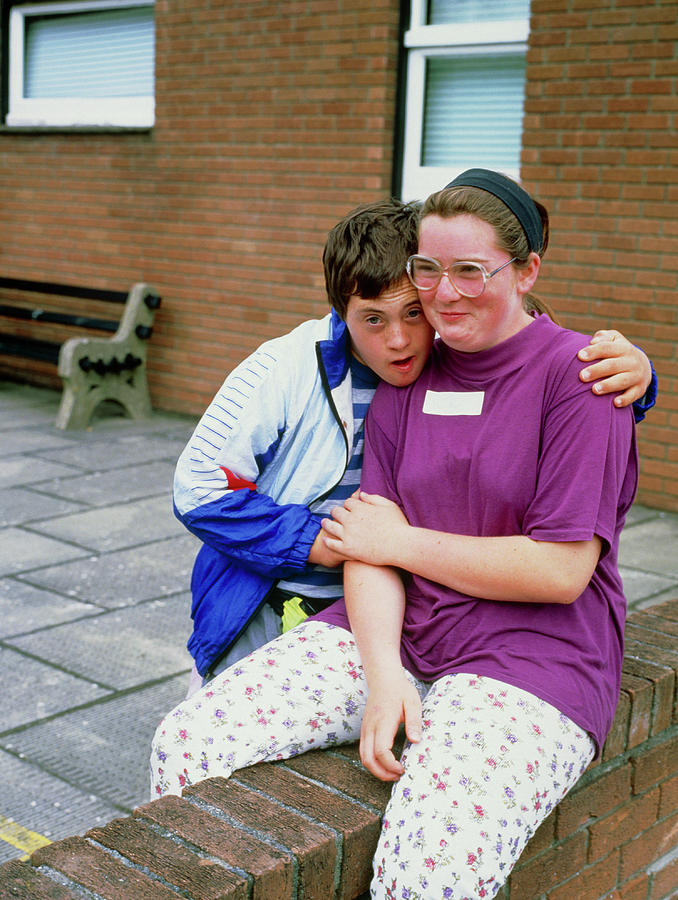 For people with a guilt complex, it is important to work with the release of emotions, although it will be very painful for them to realize their undesirability and traumatic childhood. It is important for them to separate from their parents, especially emotionally. Sometimes a physical separation is necessary: to move out and not let your parents interfere in your life. When this happens, the guilt is eased and the relationship is evened out.
For people with a guilt complex, it is important to work with the release of emotions, although it will be very painful for them to realize their undesirability and traumatic childhood. It is important for them to separate from their parents, especially emotionally. Sometimes a physical separation is necessary: to move out and not let your parents interfere in your life. When this happens, the guilt is eased and the relationship is evened out.
However, it is not easy for such parents to let their children go. When children grow up, parents become afraid that they will become unnecessary. Then manipulations begin: for example, a mother suddenly becomes ill when her son is going on a date or somehow trying to arrange his personal life. Parents begin to load their children with responsibility and remind them of unpaid debt. Although caring for parents is embedded in our culture, life is aimed at moving forward: children give "duty" to their children. It is difficult for a child who has grown up without parental love to return it to his parents.
